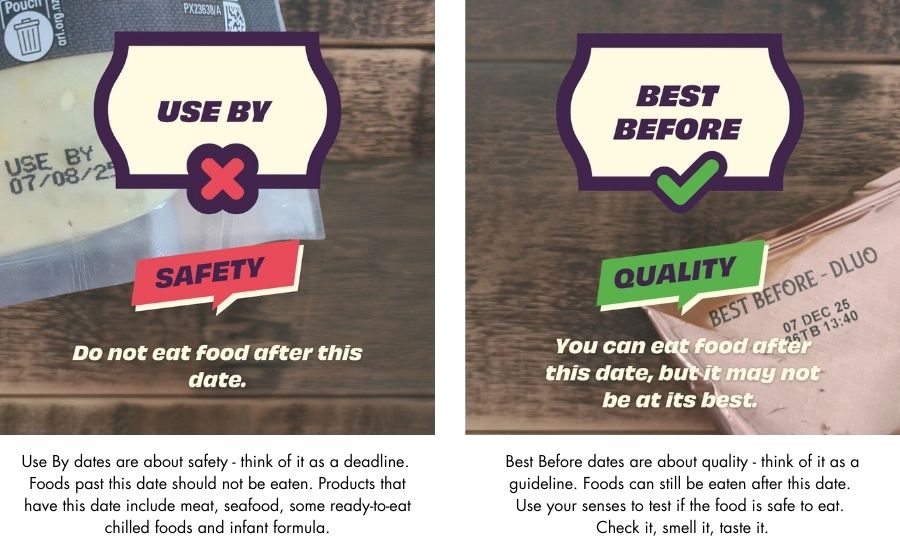Many of us get confused by the dates printed on our food packaging. Some of us wouldn’t touch food even a day past the date listed, while others are comfortable to trust our senses and eat food well after. Knowing the difference between ‘use by’ and ‘best before’ is important in reducing food waste.
So what do these dates really mean?

Products with a Use By date are typically perishable and can spoil without showing any obvious signs, posing a potential risk to health if consumed after the date. On the other hand, Best Before dates are about quality rather than safety. In NZ, any food with a shelf life of less than two years is required to have a best before date on it. Foods with a Best Before date usually provide sensory clues (such as changes in smell, taste, or texture) that indicate when the product may no longer be at its best, but it’s still generally safe to eat.
When a food product is approaching or has passed it's Best Before date, it’s often still safe to eat. Instead of discarding it right away, use your senses to check if it's still good. Smell it—if it smells off, it's a sign to toss it. Look at its appearance—any changes in colour, texture, or mould? Finally, taste a small bit to see if it’s still fresh. Trusting your senses helps reduce food waste while ensuring you're not eating something that’s truly spoiled. Not sure? Check out our guide on what to look out for in common food items when performing a sensory check, your senses are your superpower.
Always follow the storage instructions on the packaging such as “eat within three days of opening”. These guidelines are there to help maintain the food's freshness and safety. Proper storage ensures you get the most out of your food and helps prevent waste by keeping it at its best for as long as possible.
A great way to save money and reduce waste is by buying discounted food close to its Use By date and freezing it for later use. Freezing helps extend the life of your food, allowing you to enjoy it when you need it. Just be sure to defrost and consume within 24 hours for the best quality and safety.
If you're pregnant, elderly, unwell, or feeding young children, take extra care with food safety. These groups are more vulnerable to foodborne illnesses, so it's important to be more cautious when it comes to food that's near or past its Best Before date. Always prioritise safety by following storage instructions and using your senses to assess food.